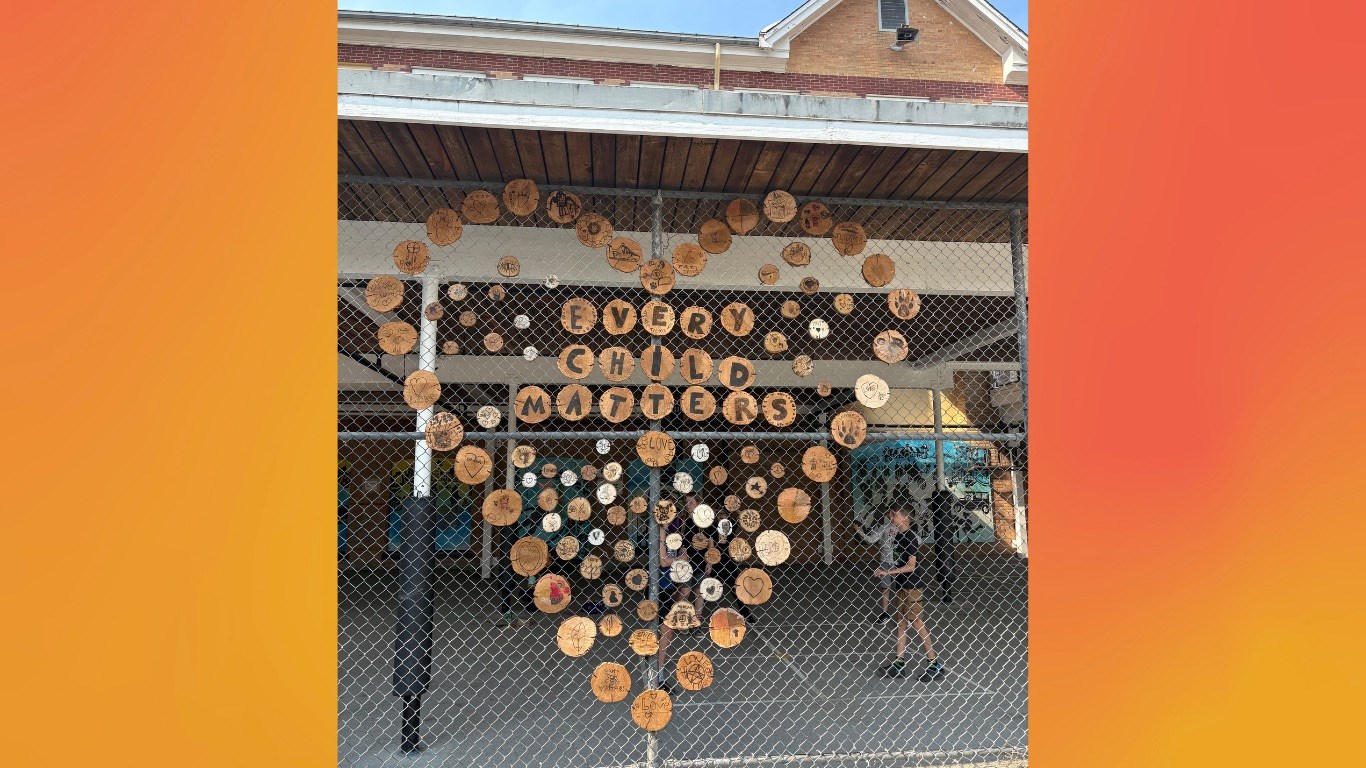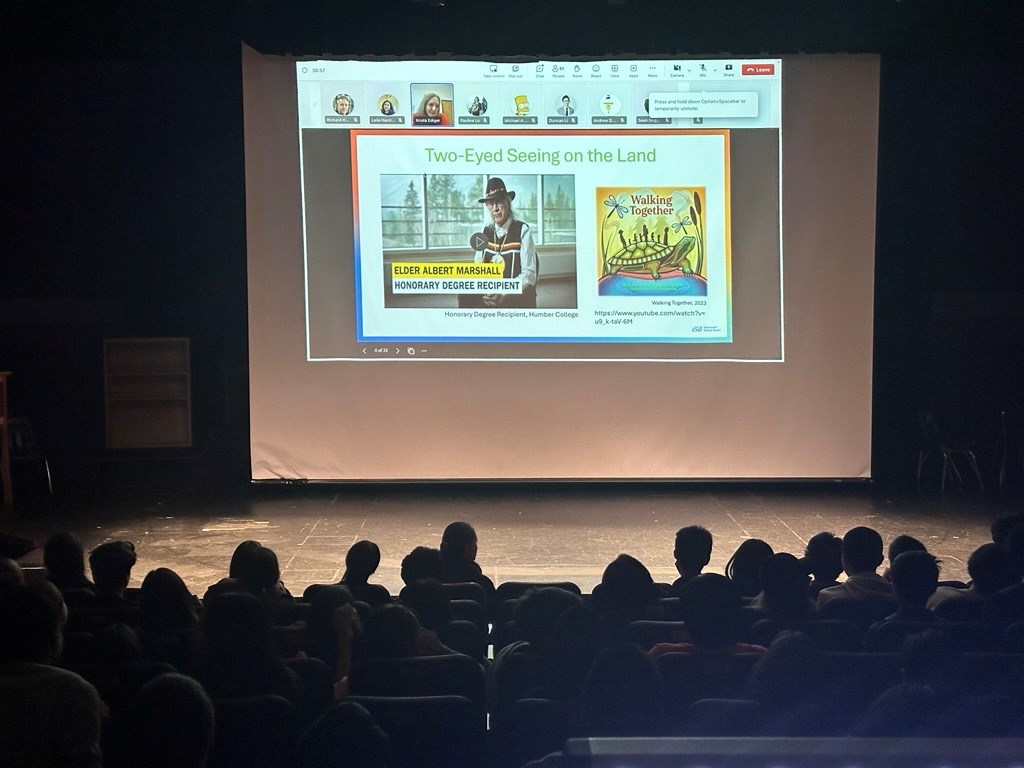Shared responsibility on National Day for Truth and Reconciliation

Across VSB, students and educators are coming together in powerful ways to mark Orange Shirt Day. This is a day of remembrance and learning. It honours survivors of residential schools and acknowledges the ongoing and intergenerational impacts of the residential school system.
In both elementary and secondary schools, Orange Shirt Day is more than symbolic, it’s an opportunity for deep reflection. Guided by the First People’s Principles of Learning, that emphasize experiential and relational approaches to education, students are participating in a range of activities that connect them to Indigenous histories and cultures.
Honouring survivors through action and art
At the elementary level, some schools, including X’Pey Elementary and Florence Nightingale Elementary organized community walks to honour and remember survivors of residential schools, the children who never came home and their families and communities.
Others are embracing storytelling and visual media. At Queen Alexandra Elementary, students worked together to create an art display for National Day of Truth and Reconciliation. Each student created a design on a wooden disc with a message they wanted to share about Orange Shirt Day. “Love”, “Kindness” and “Every Child Matters” were common themes on the discs. The discs were arranged together to form one large heart, with the words “Every Child Matters” at its centre.
“We want to respect the Indigenous children who went to residential schools and never came back. We also want to respect the survivors for what they had to go through,” said Grade 7 student Malikai.
Reflective learning at secondary schools
Secondary students are engaging in learning through cultural story work and collaborative projects that explore the lasting impacts of residential schools. Lord Byng Secondary students are exploring Two-Eyed Seeing, a concept introduced by Mi'kmaw Elder Albert Marshall that encourages learners to see the world through both Indigenous and Western lenses.  Two-eyed seeing presentation at Byng
Two-eyed seeing presentation at Byng
Meanwhile, students at Sir Winston Churchill Secondary are participating in reflective workshops designed to help students think through historical wrongs and explore solutions. One workshop focuses on the theme of apologies, particularly in the context of Canadian history and Indigenous experiences. It explores the meaning and impact of apologies and uses Indigenous art as a medium for reflection.
Also at Churchill, Dancers of Damelahamid, an intergenerational Indigenous dance company will share a performance of, In Abundance. Stories, songs and dances that celebrate the richness of Gitxsan and Cree culture.
Shared responsibility
Across British Columbia students are required to complete at least four credits in Indigenous-focused coursework to graduate. This marks a significant shift in provincial education policy, aligning with commitments to Truth and Reconciliation, particularly to Call to Action 62. While this requirement is significant, it represents only a small part of the ongoing learning and Reconciliation work educators and students are participating in across VSB each and every day.
According to VSB Indigenous curriculum education consultant, Stacey McEachern, ongoing learning is a collective and shared responsibility. It’s something that needs to be addressed every day, not just on Orange Shirt Day or National Day for Truth and Reconciliation.
“The Truth has to be explored in every subject area,” says McEachern.
However, she also notes that this work does not all have to be heavy.
“Along with the heavy truths, celebrate the excellence of Indigenous peoples and ways of being. Find the strengths in your students and celebrate the gifts of all learners in your care.” McEachern notes that finding and celebrating the gifts of each student is deeply rooted in Indigenous pedagogy.
Through meaningful activities, creative expression and reflective learning, students and staff across VSB are honouring the survivors and victims of residential schools and actively engaging in the ongoing journey toward Reconciliation.

